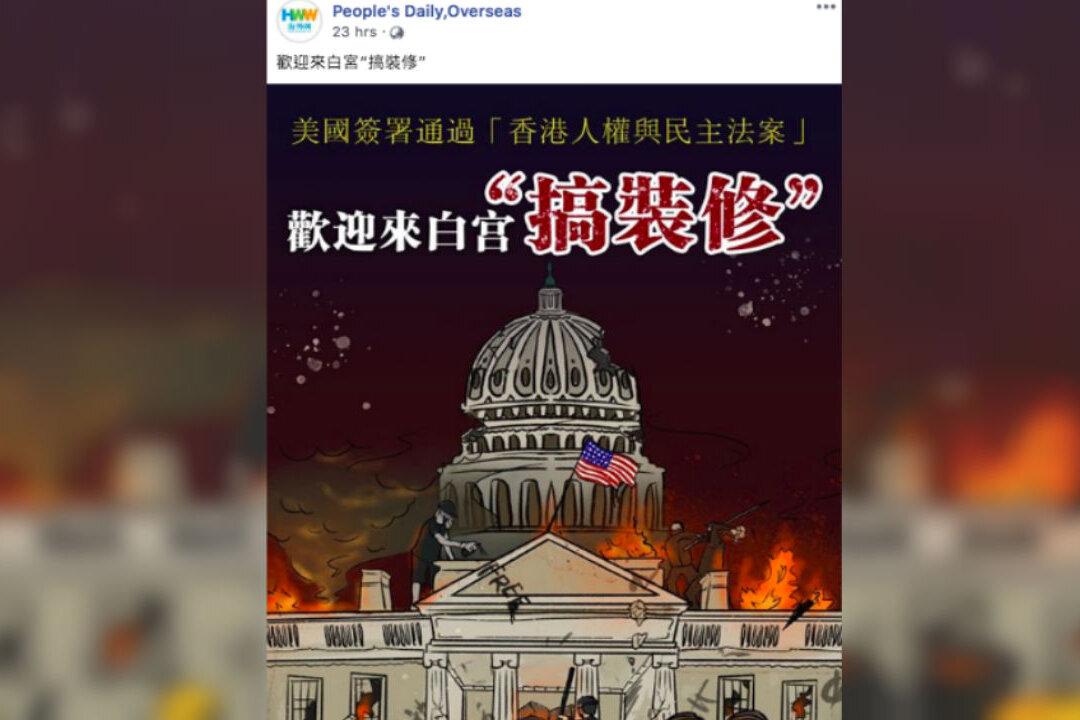Two Chinese state media outlets called for netizens to “renovate” the White House, in response to the United States passing a law supportive of the Hong Kong pro-democracy movement—only to mistake the U.S. Capitol for the White House.
On Dec. 4, the country’s state broadcaster CCTV and Party mouthpiece People’s Daily Overseas both posted on Facebook an image with the following words: “The United States passed the Hong Kong Human Rights and Democracy Act. You’re welcome to come ‘renovate’ the White House.”





